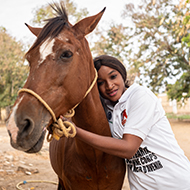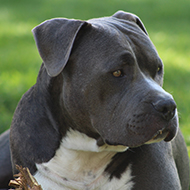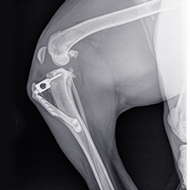The papers, which studied an array of animal species, revealed that elderly guinea pigs were the only animal species to display a reduction in the total number of neurones
A study led by the University of Surrey casts doubt on the view that animals lose neurones as they age
A study led by the University of Surrey's School of Veterinary Medicine has cast doubt on the long-held view that animals always lose neurones as they get older.
Dr Augusto Coppi, teaching fellow in veterinary anatomy, reviewed six decades of research on the peripheral nervous system of animals.
Dr Coppi found that elderly animals do not always suffer from a reduction in neurones in in the autonomic nervous system - the part of the nervous system found in several organs outside of the brain, such as the heart and intestine. In some species, it was found that the number of neurones can actually increase.
Dr Coppi said: "Although our studies focussed on the peripheral nervous system, we may be able to draw a parallel with the central nervous system (including the brain), which comprises the same main type of cells.
"This could be an example of where the concept of One-Health medicine (which links animal and human health) could directly translate this research into improving quality of life for elderly people - if ageing does not necessarily lead to neuron loss, then we could have the potential to learn and retain new knowledge, even in old age."
The review examined 14 of Dr Coppi's group papers on the same subject, which were published between 2004 and 2013. The papers used a method called stereology - a revolutionary way of sampling and counting particles including cells, bacteria and viruses.
The papers, which studied an array of animal species, revealed that elderly guinea pigs were the only animal species to display a reduction in the total number of neurones. They also confirmed the production of new neurones in elderly animals, something that was considered impossible according to previous medical literature on the topic.
Dr Coppi added: "We can attribute the misleading conclusion that there was always neurone loss during ageing to the morphometric 2-D techniques previously used to quantity cells.
"Stereology is a state-of-the-art and more accurate and precise approach, which elicits more robust and reliable results"
The full report, Stereological and Allometric Studies on Neurons and Axo-Dendritic Synapses in Superior Cervical Ganglia, can be read at http://epubs.surrey.ac.uk/805839/







 Birmingham Dogs Home has issued an urgent winter appeal as it faces more challenges over the Christmas period.
Birmingham Dogs Home has issued an urgent winter appeal as it faces more challenges over the Christmas period.
